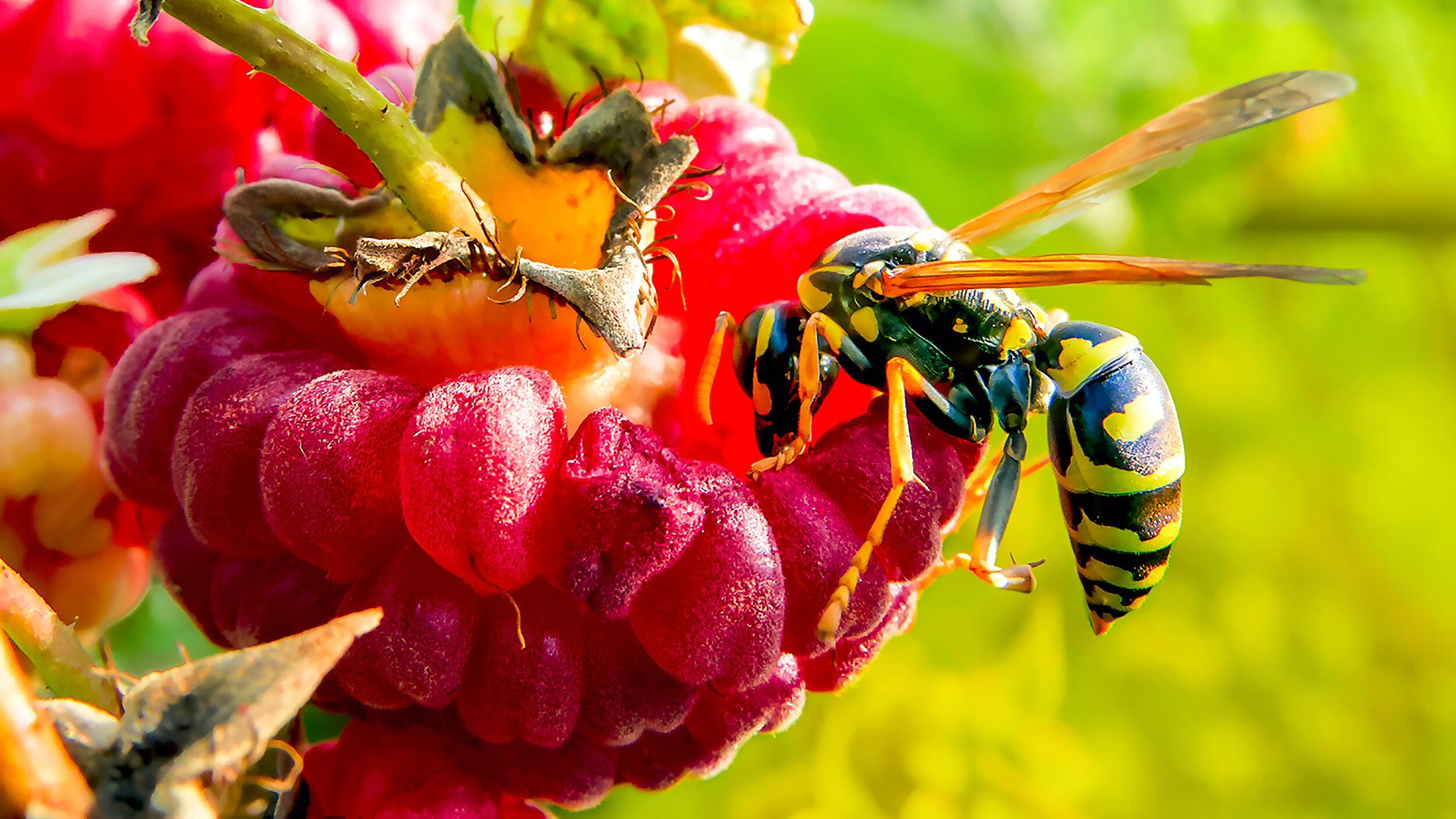Am I mistaken, or are there a lot fewer bees cruising around our formerly friendly skies this year and a lot more pesky wasps, hornets and yellow jackets? Also, is it true wasps get meaner in September? There are so many of them, the thought they might get even more temperamental makes me nervous. —Micah S.
You’re probably familiar with bee colony collapse disorder, the condition where beekeepers return to formerly healthy hives to find the queen and her larvae intact, but all the workers missing—not dead, but mysteriously vanished overnight, like the crew of the Mary Celeste. (It’s said in some cases the bees disappear so suddenly keepers find tiny kettles still boiling on their little bee stoves.)
If you’re like me—paranoid—this fact has been lodged in your subconscious since it was widely reported in the media in the mid-2000s, oozing unease like a seemingly minor detail in the first chapter of a Michael Crichton novel that actually foreshadows the entire coming apocalypse.
So it would have been nice if the media had also widely reported the fact that CCD has waned significantly since peaking in 2007, and now accounts for less than a third of all colony failures. So whatever happened to your bees, it’s probably not that.
That said, bees have had a rough year. Last year’s wet spring and long, dry summer (both bad news for bees) took a toll on populations, and this year’s cold, wet spring didn’t help either. Both Portland Urban Beekeepers and apiculturists at Oregon State University say swarms—which happen when a healthy hive grows large enough to split in two—are down in 2023: You may well be seeing fewer bees.
I could not find any information suggesting there are more wasps this year than usual, but who knows? If you’re seeing more of one particular species—yellow jackets especially—on your property, it may be because they’ve built a nest nearby. (Look for a hole in the ground with a shit-ton of yellow jackets going in and out of it.)
If you do find a nest, you should deal with it soon: Wasps really do become more aggressive in the fall as their food—nectar, fruit, insects and carrion—becomes more scarce. In fact, in a depressing echo of capitalism, every single wasp in a yellow-jacket nest except the queen will starve to death by the end of the fall. It’s no wonder that by the time Labor Day rolls around, many may feel they have little to lose by challenging you one-on-one for the rest of that burger.
Questions? Send them to dr.know@wweek.com.
